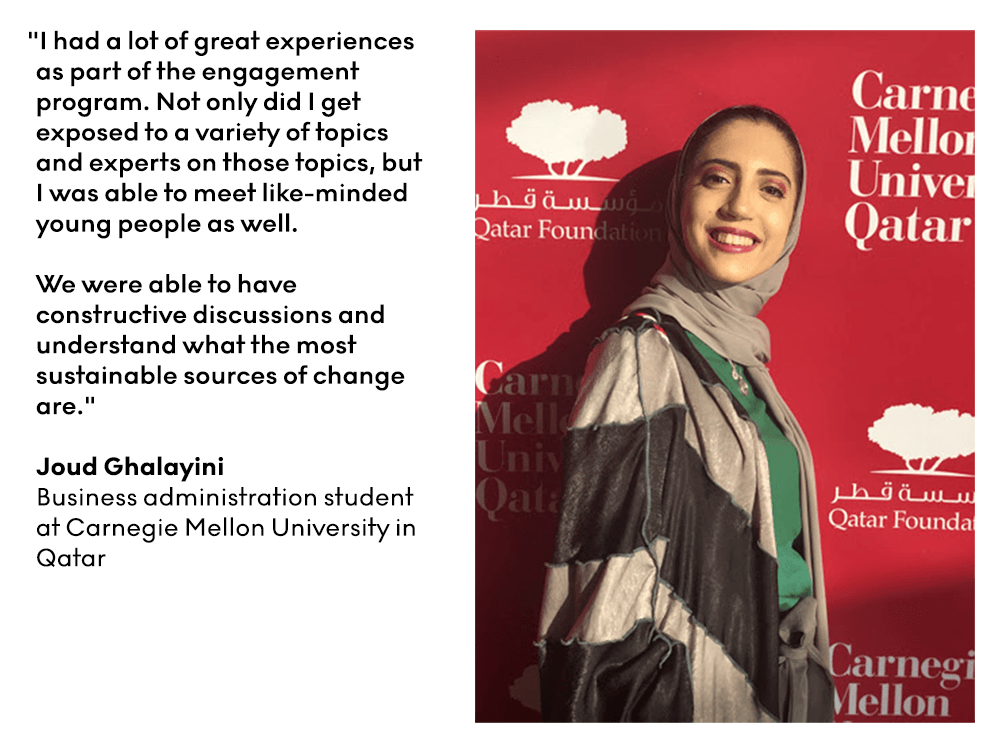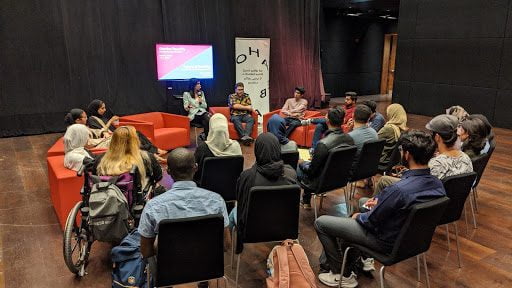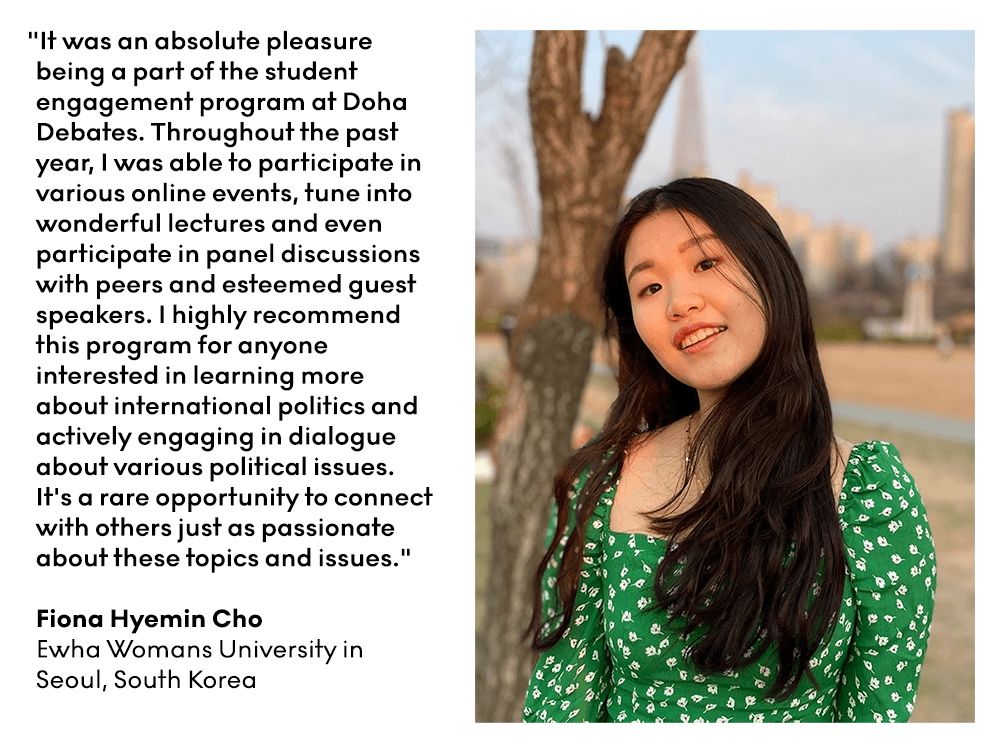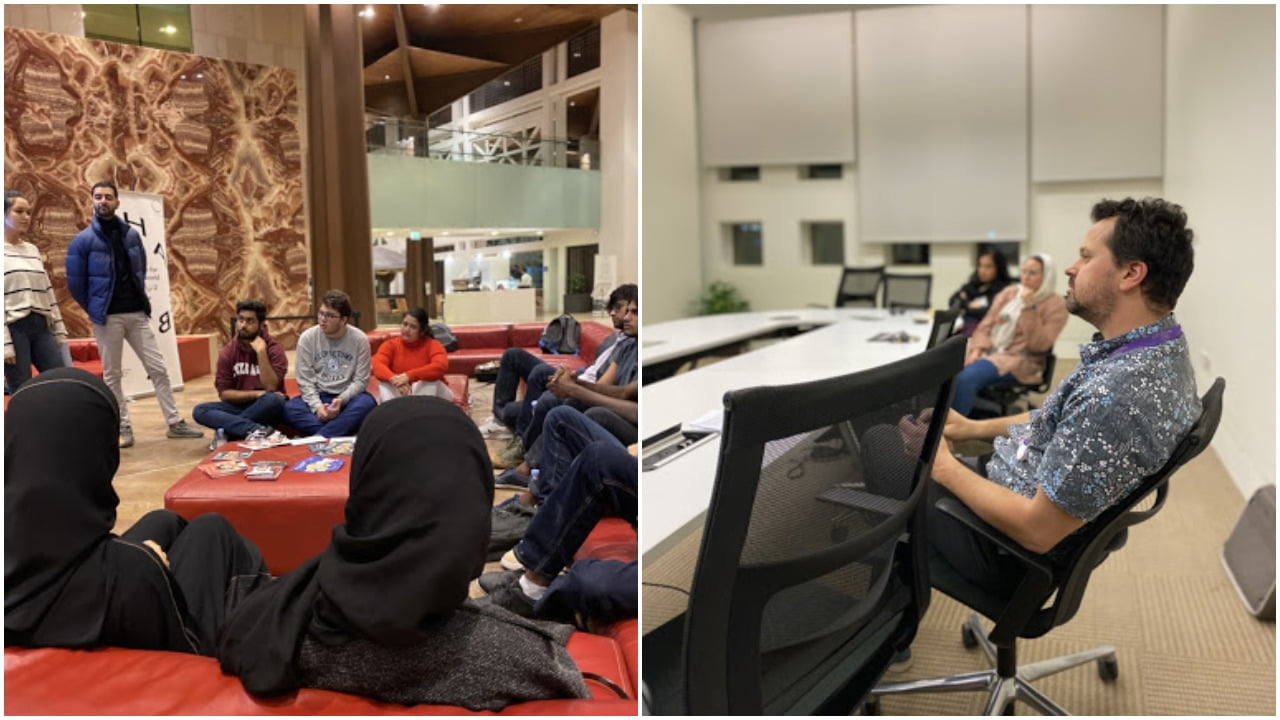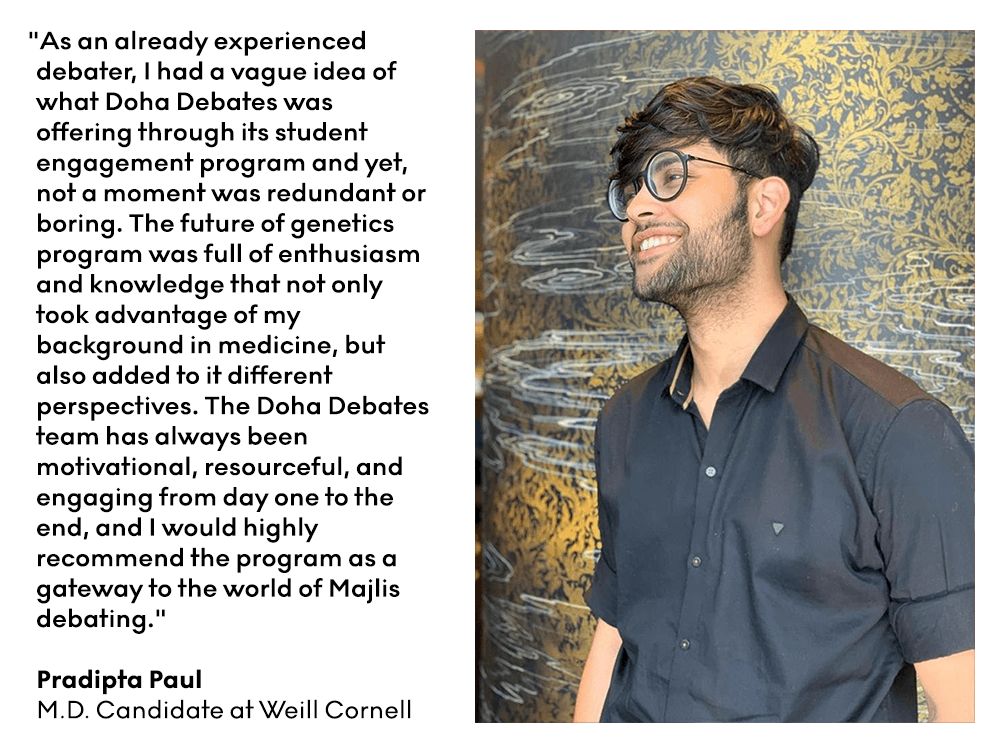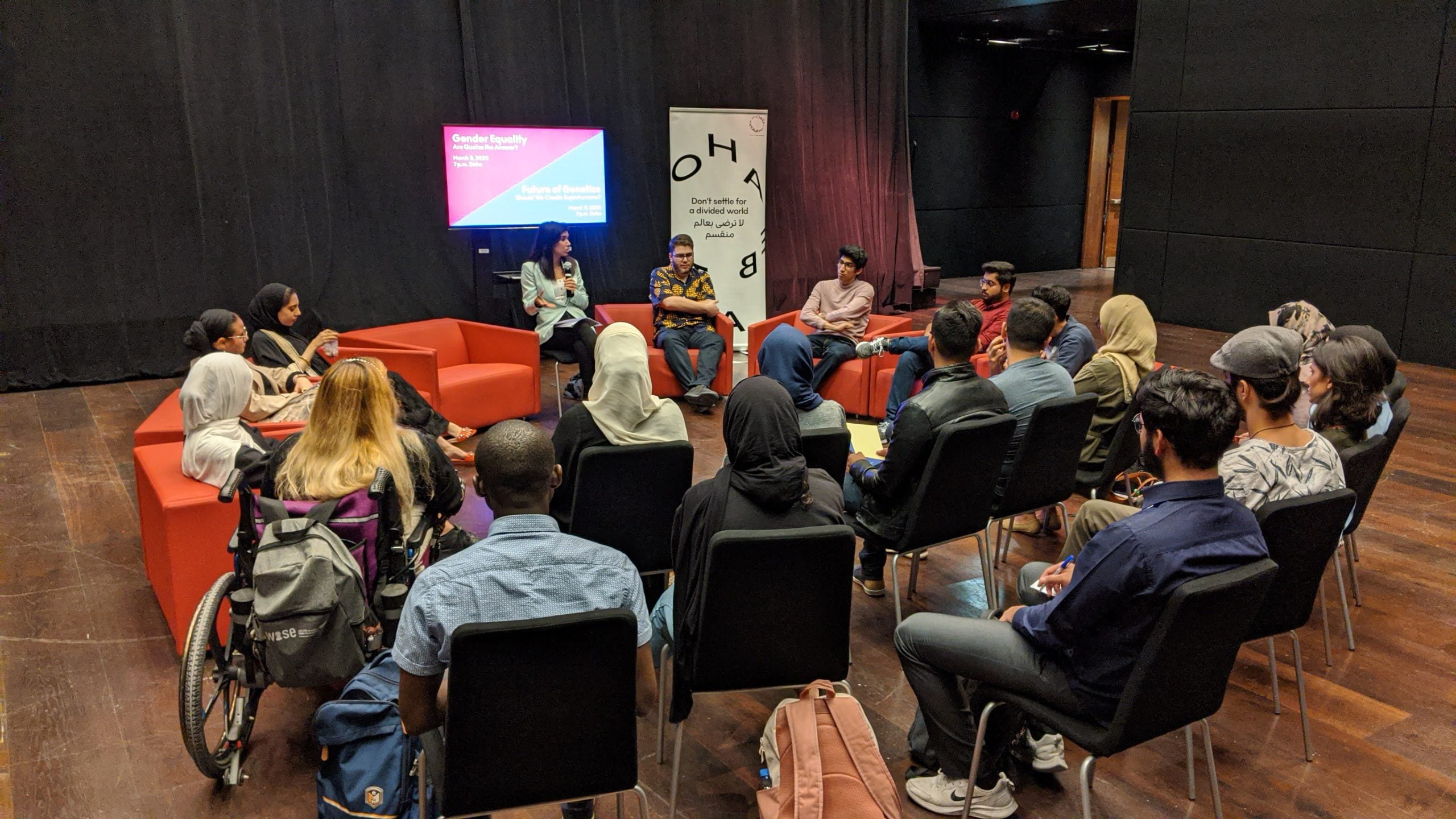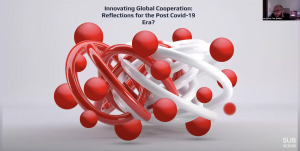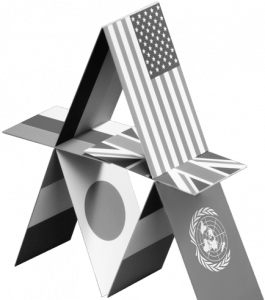More than just debates: Connecting through conversation

New Doha Debates program helps build engaged, informed leaders for tomorrow
One of the core missions at Doha Debates is to connect with students around the world, starting conversations about the global challenges discussed during our marquee debates.
To that end, we created a student engagement program in 2020 that focused on preparing students for our debates. At the start of the year, we ran a series of discussion groups, workshops and guest lectures for a group of about 30 students from half a dozen Qatari universities.

Global reach
Six Qatari universities were involved in our first engagement program: Qatar University, Texas A&M University at Qatar, Georgetown University in Qatar, Weill Cornell Medicine-Qatar, Carnegie Mellon University in Qatar, Northwestern University in Qatar and Virginia Commonwealth University in Qatar. Nadine Abulnasr, a journalism student at Northwestern University in Qatar, helped to lead and organize the program.We started this program to give students, a key part of our global audience, some background knowledge ahead of our March debates, which addressed the topics of future of genetics and gender equality. To equip them to fully engage with our interactive debates, we asked the student group to think about questions and ideas surrounding the topics, and to attend guest lectures. As ever at Doha Debates, we made the program solutions-oriented, and focused on looking for positive outcomes to these thorny global challenges.
The students attended guest lectures by two Qatari-based professors: Professor Torsten Menge, a philosophy professor at Northwestern University in Qatar, and Dr. Mohammed Ghaly from the College of Islamic Studies. Professor Menge gave a lecture on the topic of gender equality, and Dr. Ghaly spoke to the group about the future of genetics.
This first series of our engagement program culminated in a special live event, a relaxed and informal — but mildly competitive — debate. Our participants showed off their newfound knowledge, put forward their opinions about the central questions of our upcoming debates and backed up their claims with supporting arguments.

Guest lecturers
Dr. Mohammed Ghaly, professor of Islam and biomedical ethics at the Research Center for Islamic Legislation & Ethics (CILE) at Hamad Bin Khalifa University, gave a talk entitled “Should we build superhumans?” Professor Torsten Menge, a philosophy professor at Northwestern University in Qatar, gave a lecture entitled “Are quotas the answer when it comes to gender inequality?”And then… everything changed
As we were holding our March debates, many countries around the world, including Qatar, were going into lockdown. Doha Debates had already been planning a summer season of debates and organizing a second engagement program, so we changed course: This time, everything would be virtual.
We used our networks to recruit students from all over the world to take part in a second round of the engagement program. Students responded from far and wide, with interested students reaching out to us from Rwanda, Afghanistan, Greece, Egypt, Qatar, the U.S., Turkey, Mexico, South Korea and Gaza.
Again we invited the students to familiarize themselves with the upcoming debate topics. We sent out study resources and background information on socialism and global cooperation, the respective topics for the two summer debates. We asked our speakers: “Is the pandemic a catalyst for radical change?” and “Do we need new institutions for a new era?”
The guest lectures for this virtual series were given by Dr. Evren Tok from the College of Islamic Studies and Dr. Marc Owen Jones from Hamad Bin Khalifa University.

Guest lecturers
Dr. Evren Tok, associate professor and program coordinator for the master’s program in Islam and global affairs at the College of Islamic Studies, gave a lecture entitled “Innovating global cooperation: Reflections for the post-COVID-19 era.” Dr. Marc Owen Jones, Ph.D., assistant professor in Middle East studies and digital humanities at Hamad Bin Khalifa University, gave a lecture entitled “The impact of disinformation and COVID-19: The challenges for global governance.”We enjoyed working with all the students from Qatar — and around the world — during the 2020 student engagement program, and offer a huge thanks to everyone who participated. We look forward to building on this year’s success for our 2021 debate season.
If you are a student and would like to be part of the 2021 Doha Debates student engagement program, please fill out a short questionnaire.
